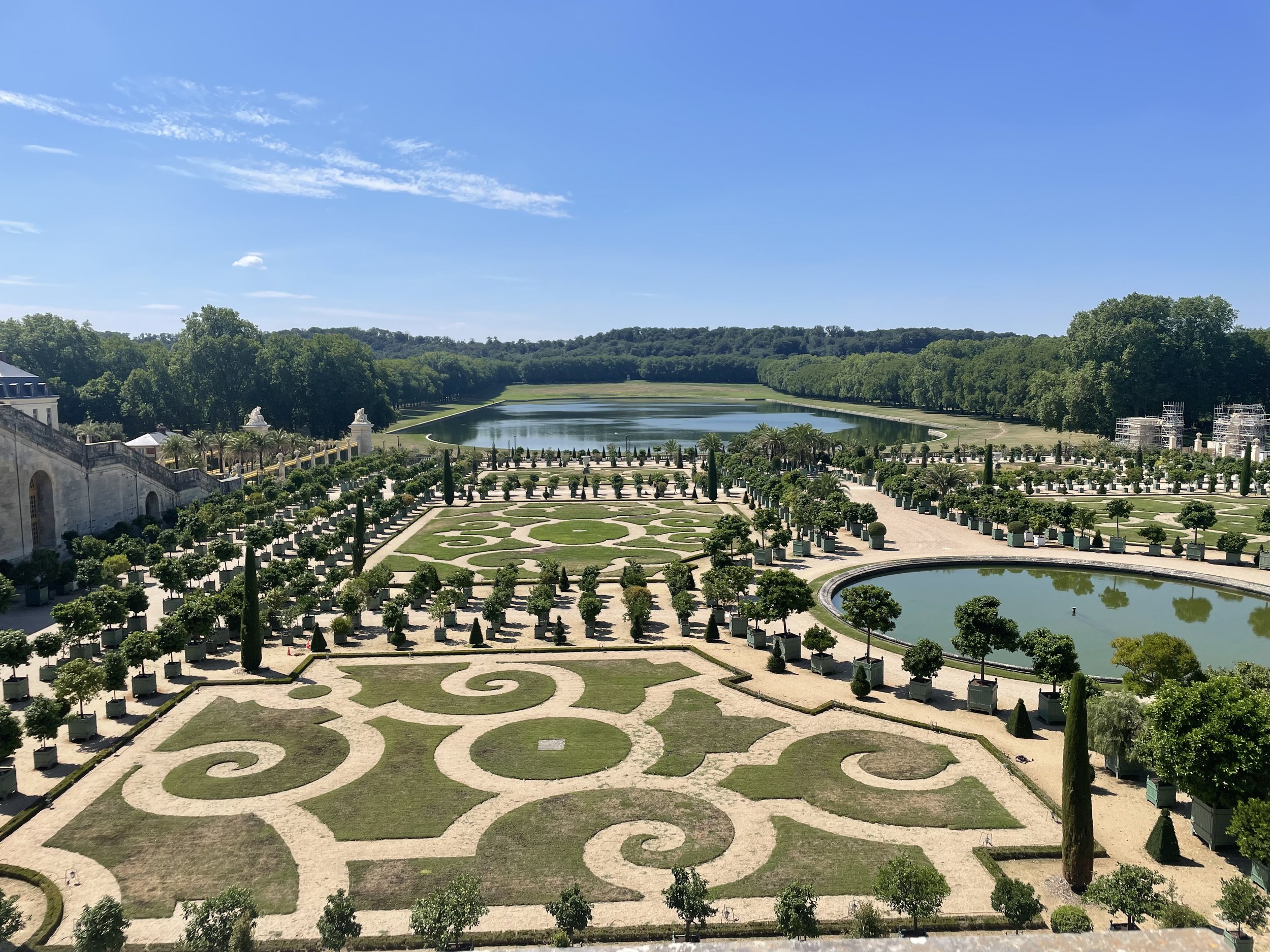Here’s to my penultimate weekend in Paris!
On Saturday we spent our time getting to tour the Louvre which was truly such a splendid delight. On one end the Louvre is a magnificent building and the architecture is something to marvel at. Inside the building, the paintings transport you to another world. It is a world that would be so wonderful to be completely entranced by. However, unfortunately, due to the capacity of people that tour the Louvre at all times, you find yourself constantly bumping into people which puts a bit of a damper on the awe-inspiring experience. Nonetheless, the painting is much bigger than I was expecting. In fact, most of them are massive. When I put this in the context of the time in which they were created this only makes it even more impressive. I felt as if I was in a special little world as I toured the rest of the Louvre.
This got me thinking about the concept of fantasy and its relation to both a Tale of Two Cities and Les Miserables. Both novels are fictional tales, albeit Les Miserables was loosely based on a real-life person. And despite their fictional nature, they are classic novels that explore life in Paris and London in a way that feels real to what the actual lived experience of the time might have been like. Of course, this is part of the purpose of any narrative. And yet, the intersection between fantasy and reality felt a bit blurred while I was visiting the Louvre. At times I would see these grand paintings of humans with angels' wings or humans being personified as other mystical beings and I simply stared in awe.
While those paintings were not meant to illustrate reality they still had a profound effect on me in real-time. In the same way, the novels that we are reading in class are not based on true events but they also provided me with a meaningful experience. Of course, there is nuance here as the novels were are reading are still meant to mimic real life whereas the paintings I am referencing were completely in the realm of fantasy. Nonetheless, the texture and contrast between fantasy and reality is something fun to dig into especially when I place it in juxtaposition to the novels were are reading.
As I enter my last week in Paris I find myself appreciating the city more than I originally did. When I first got here, I found myself underwhelmed by the city. It was everything I expected in terms of the city layout and certain aspects of french culture. But at the same time, I found myself not appreciating the acclaimed appeal this city is known for. For example, I alongside many of my other peers found the food in Paris to leave much to be desired, which was surprising coming from a city renowned for its culinary expertise. But now I as I enter my last days in the city, there is a unique and subtle love I am starting to develop. This love is rooted in the very simple things the city has to offer.
Today when I woke up, I looked out my window and simply stared with love and awareness of the garden beneath me. The sun had only just started to peak and the air felt fresh. The garden was lush and green. And for that moment, life felt good. Being able to order a pastry at every whim is also another delight, since there seems to several bakeries on any given block in Paris. It is the ability to “flanuer” or roam about the city in a pensive manner. It is simply the simple things in Paris that make this city so marvelous.
But isn’t the simple things in life what make life in general worth living, not just life in Paris. For example, when we look at the novel Les Miserables, we see various characters and how their lives intersect. At the backdrop of it all is the brink of revolution and active revolution. But even this novel was at its heart showing regular everyday people trying their best. Characters such as Jean Valjean, Marius, Eponine, and Cossette were all at the end of the day driven by the love they had for other people in their life. And the revolution that drove the plot, was a really a fight for a simple life. Everyday citizens were dying violent deaths for the right to be able to comfortably exist and love others around them.
It’s the simple things in life.







